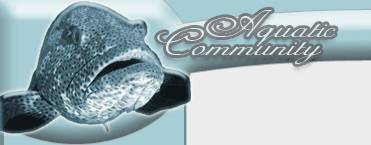Hookworms in dogs
Hookworms – a type of internal parasites – is a common problem for dogs. There exists a wide range of different hookworm species capable of infecting dogs. Three of the most commonly found ones are Ancylostoma caninum, Ancylostoma braziliense and Uncinaria stenocephala. Ancylostoma hookworms are common in tropical and subtropical parts of the world, while Uncinaria is more commonly seen in colder climates. Regardless of which species of hookworm that infects your dog, common signs of illness are vomiting, diarrhoea and weight loss.
Hookworm transmission in dogs
Dogs can be infected with hookworms orally or through the skin. Oral infection is much more common than infection through the skin. Unborn puppies can also be infected via the placenta if their mother is infected with hookworms, and female dogs can also pass hookworms to their puppies through the milk.
Hookworm symptoms in dogs
Hookworms such blood from the tiny vessels found in the intestinal wall of the dog, and this can eventually lead to anaemia. Anaemia is especially common in puppies since they are more vulnerable, but can happen to adult dogs as well. In severe cases, a blood transfusion will be required to save the dog.
Common symptoms of hookworm in dogs are weakness, pale gums and diarrhoea. Sometimes it will be possible to see blood in the dog’s faeces. If the environment around the dog is heavily infested, the dog can show signs of itching and skin irritation, because the hookworm larvae will burrow into the skin of the dog. (Some species of hookworm are however incapable of burrowing.)
A hookworm infection can be lethal for young puppies and for adult dogs that has no immunity to the parasite. Puppies that survive severe hookworm infections can be stunted and never grow as big as they should.
Hookworm treatment for dogs
Fortunately, several drugs with only mild side effects have proven efficient against hookworms in dogs. Some can be given orally while others must be injected. A problem with these medications is however that they will only kill the adult hookworms inside the dog – not the larvae. It is therefore necessary to repeat the hookworm treatment again after 3-4 weeks when the former larvae has turned into adults.
Medication containing Pyrantel pamoate is capable of killing adult hookworms in dogs. Drontal ®, Nemex ® and Strongid T ® are just three examples of brands of medication containing Pyrantel pamoate that can be used to de-worm dogs. Other alternatives are Mebendazole ® and Fenbendazole ®, two medications that will be absorbed by the dog’s GI tract and kill all the hookworms that live there. A second treatment must be carried out 4 weeks later to kill the hookworms that were migrating during the first hookworm treatment.
The dog is not the only thing that needs treatment when hookworms have been diagnosed. The environment around the dog can be filled with hookworm eggs and larvae, and you must therefore use a strong detergent to disinfect your home. The grass in your garden should also be treated; there are several products available that will not kill the grass. Ask your veterinarian for more advice.
Preventing hookworm in dogs
The heartworm is one of the most feared parasitic worms in dogs, but fortunately monthly heartworm treatment will prevent disease. This monthly heartworm preventative has also turned out to be efficient for the prevention of a lot of other intestinal parasites such as intestinal hookworm.
Puppies should be de-wormed as soon as they reach an age of 2-3 weeks. Nursing female dogs must be treated concurrently with their offspring to prevent re-infection.
Bitches infected with hookworms should not be used for breeding.
Ask your veterinarian for more advice regarding routine de-worm treatment that will remove hookworms as well as other intestinal parasites in your dog.
Parasites in dogs: (click for more info)
Cheyletiellosis in dogs
Chiggers in dogs
Ear Mites in dogs
Fleas in dogs
Heartworm disease in dogs
Hookworms in dogs
Mange in dogs
Roundworm in dogs
Tapeworms in dogs
Ticks in dogs
Trichinosis in dogs
